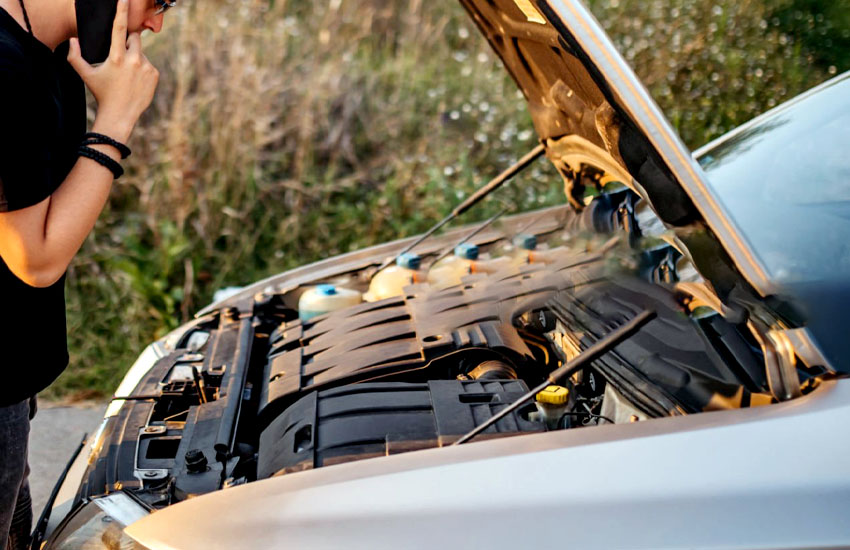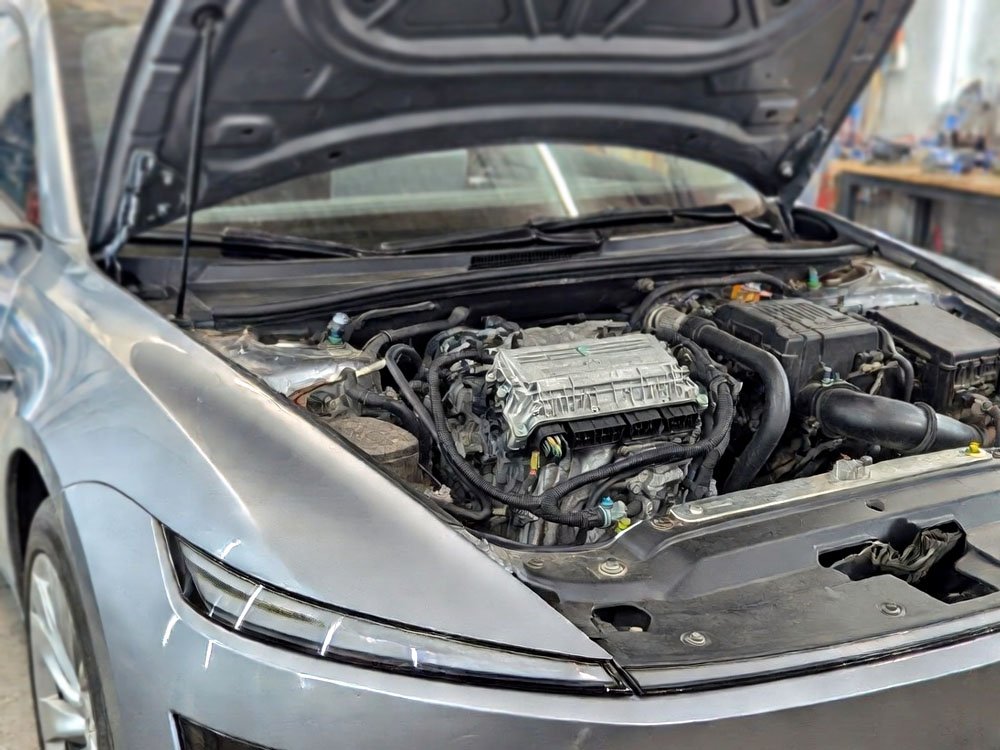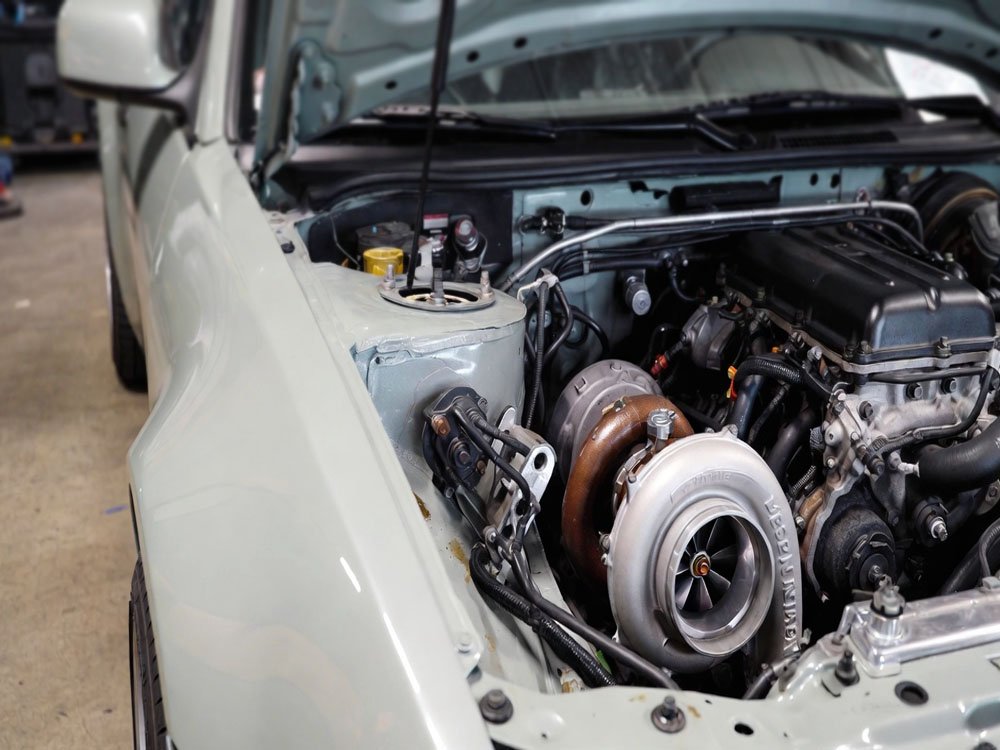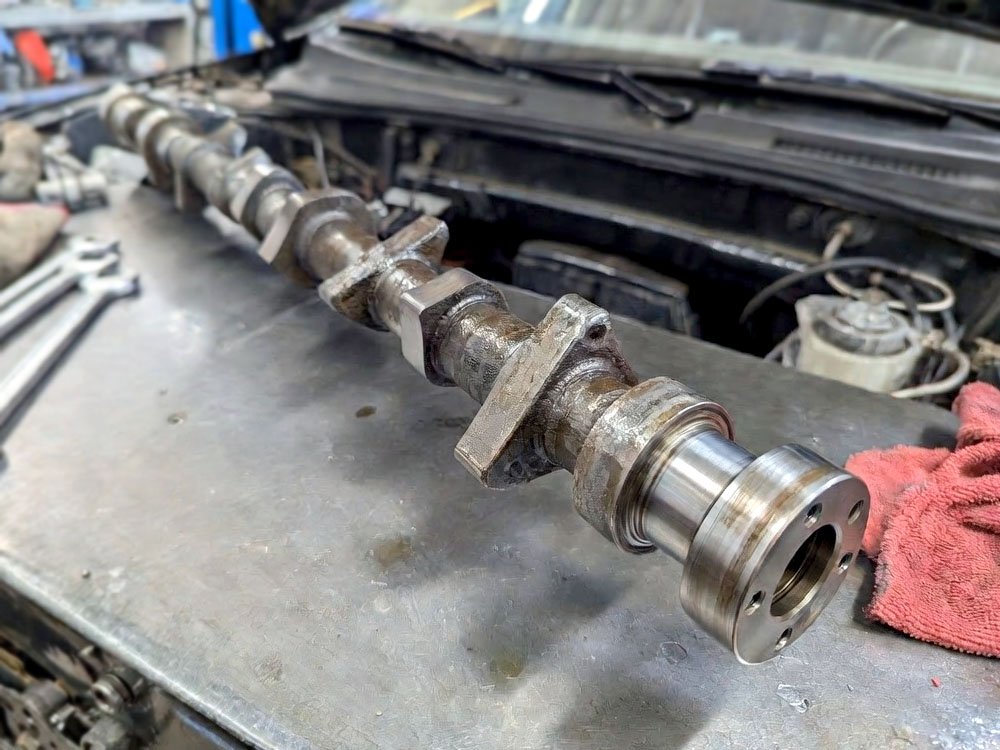Sputtering during start-up can be caused by issues with the fuel system, ignition system, or engine performance. Addressing these common problems can help resolve the issue and ensure smooth start-ups for your vehicle. When your car sputters during start-up, it’s not only frustrating but also indicative of potential underlying issues.
Whether it’s a weak battery, dirty fuel injectors, or a malfunctioning spark plug, understanding the causes of sputtering can help you address the problem effectively. In this guide, we’ll explore the common reasons for car sputtering during start-up, along with practical fixes to remedy the issue and get your vehicle running smoothly again.
Whether you’re a novice or experienced car owner, these insights will provide valuable information to help you troubleshoot sputtering start-up issues and keep your vehicle in top condition.

1. Dirty Fuel Injectors
Dirty fuel injectors can cause your car to sputter during start-up. Regular cleaning and maintenance can help improve fuel flow and resolve this common issue.
Clogged Fuel Injectors
Have you ever experienced your car sputtering during start-up? One common reason for this frustrating issue is dirty fuel injectors. Fuel injectors play a vital role in your car’s engine by spraying fuel into the combustion chamber at the precise moment.
However, over time, these injectors can become clogged with dirt and debris, leading to restricted fuel flow and poor performance.
A clogged fuel injector can disrupt the proper fuel-air mixture required for combustion, resulting in sputtering and difficulties starting the engine. How does this happen? Well, when your fuel injectors are dirty, the tiny nozzles that spray fuel can become blocked. This causes a disruption in the fuel flow, leading to an insufficient amount of fuel reaching the engine.
Fuel Additives
Fortunately, there are solutions to address clogged fuel injectors and get your car running smoothly again. One effective method is using fuel additives.
Fuel additives are chemical compounds designed to clean and unclog fuel injectors, restoring their optimal function. They work by breaking down the stubborn deposits that accumulate over time, allowing fuel to flow freely through the injectors.
When choosing a fuel additive, look for one that specifically targets injector clogs. These additives typically contain powerful detergents and cleaning agents that can dissolve and remove stubborn deposits.
When added to your fuel tank, the additive mixes with the gasoline and cleans the injectors as you drive. Regularly using fuel additives can prevent and address injector clogs before they become a recurring issue.
Using fuel additives is an easy and cost-effective method to maintain clean fuel injectors. By incorporating this simple step into your regular maintenance routine, you can ensure optimal performance and avoid the frustration of sputtering engines during start-up.
Here are some key benefits of using fuel additives for addressing clogged fuel injectors:
- Restores Fuel Flow: Fuel additives dissolve deposits, unclogging fuel injectors and restoring proper fuel flow.
- Improves Engine Performance: Clear fuel injectors provide the perfect fuel-air mixture, improving engine performance and power.
- Enhances Fuel Efficiency: By ensuring proper fuel delivery, clean injectors can help improve fuel efficiency, saving you money at the pump.
- Reduces Emissions: When fuel injectors are clean, the combustion process is more efficient, resulting in reduced harmful emissions.
- Prevents Future Build-Up: Regular use of fuel additives can help prevent future build-up and keep your fuel injectors clean over time.
Don’t let dirty fuel injectors hold your car back. Choose a high-quality fuel additive and bring back the smooth start-up and performance your car deserves. By regularly maintaining your fuel injectors, you can ensure a reliable and enjoyable driving experience.
2. Faulty Ignition System
Worn Spark Plugs
One of the main causes of a sputtering car during start-up is worn spark plugs. Spark plugs play a crucial role in delivering the electrical spark that ignites the fuel in the combustion chamber.
Over time, the tips of the spark plugs can become worn out or covered in carbon deposits, decreasing their efficiency. When this happens, the spark plugs may not be able to produce a strong enough spark, resulting in sputtering or misfiring during start-up.
To fix this issue, you can replace the worn spark plugs with new ones. It is important to consult your car’s manual or seek professional advice to ensure you choose the correct spark plugs for your vehicle.
Regularly inspecting and replacing worn spark plugs can help maintain the performance and efficiency of your ignition system, preventing sputtering during start-up.
Faulty Ignition Coil
Another common reason for a sputtering car during start-up is a faulty ignition coil. The ignition coil is responsible for transforming the low-voltage power from the car’s battery into a high-voltage spark that is needed to ignite the fuel. If the ignition coil is malfunctioning, it can lead to weak or inconsistent sparks, causing the engine to sputter or misfire.
To diagnose a faulty ignition coil, you can use a multimeter to check for any irregular readings in the coil’s resistance or voltage output. If the readings are outside the recommended range, it is likely that the ignition coil needs to be replaced.
Replacing a faulty ignition coil should be done by a professional, as it requires proper handling and knowledge. Ignoring a faulty ignition coil can lead to more severe engine problems and further damage to the ignition system. Regular maintenance and inspections of the ignition coil can help identify any issues early on, ensuring smooth start-ups and optimal engine performance.
3. Low Fuel Pressure
Low fuel pressure is a common cause of car sputtering during start-up. Insufficient fuel pressure can result in an inadequate amount of fuel reaching the engine, leading to sputtering and hesitation during ignition. It’s important to address low fuel pressure promptly to prevent further damage to your vehicle. Here are some common reasons and fixes for low fuel pressure.
Fuel Pump Issues
A faulty fuel pump can contribute to low fuel pressure, causing sputtering and difficulty starting your car. The fuel pump is responsible for delivering fuel from the tank to the engine, and any malfunction can disrupt the fuel flow.
Symptoms of a failing fuel pump may include engine sputtering, rough idling, and difficulty starting the vehicle. If you suspect a fuel pump issue, it’s crucial to have it inspected and replaced if necessary by a qualified mechanic.
Fuel Filter Problems
The fuel filter plays a critical role in maintaining proper fuel pressure by filtering out impurities and debris from the fuel before it reaches the engine. Over time, the fuel filter can become clogged or dirty, hindering the flow of fuel and causing low fuel pressure.
This can result in engine sputtering and poor performance. Regularly changing the fuel filter according to your vehicle manufacturer’s recommendations is essential for preventing fuel pressure issues.
4. Electrical Problems
Faulty Wiring
Old and worn-out wiring can cause your car to sputter during start-up. Loose connections or damaged wires can disrupt the flow of electricity to the engine, leading to inconsistent ignition. Regular inspection and maintenance of the wiring system can help identify and fix any faulty wiring issues.
Weak Battery
A weak battery can result in insufficient power being supplied to the starter, causing sputtering during start-up. Loose terminals or a buildup of corrosion on the battery posts can also impact its effectiveness. Regularly checking and maintaining the battery can help prevent start-up issues caused by a weak battery.
5. Air Intake Issues
When your car sputters during start-up, one of the possible culprits could be air intake issues. The air intake system plays a crucial role in supplying clean and regulated air to the engine for combustion.
However, various problems can arise within this system, affecting the engine’s performance. Here, we will explore two common air intake issues: clogged air filters and mass airflow sensor problems.
Clogged Air Filter
A clogged air filter can disrupt the air-to-fuel mixture ratio, resulting in a sputtering engine during start-up. Over time, the air filter accumulates dirt, dust, and debris, obstructing proper airflow. This can lead to a rich fuel mixture, making it difficult for the engine to achieve the necessary combustion.
To fix this issue, you can follow these steps:
- Locate the air filter housing, typically found in the engine compartment.
- Remove the housing cover and take out the old air filter.
- Inspect the filter for any signs of clogging or damage.
- If necessary, replace the air filter with a new one compatible with your car’s make and model.
- Secure the housing cover back in place.
Mass Airflow Sensor Problems
The mass airflow (MAF) sensor is responsible for measuring the amount of air entering the engine. If this sensor malfunctions or gets dirty, it can disrupt the air-to-fuel ratio and cause sputtering during start-up.
To address mass airflow sensor problems, try the following:
- Locate the MAF sensor, usually positioned near the air filter housing or the throttle body.
- Remove the MAF sensor carefully, following the manufacturer’s instructions, if available.
- Inspect the sensor for any dirt, dust, or debris and clean it using specialized MAF cleaner.
- Allow the sensor to dry completely before reinstalling it.
- If cleaning the sensor does not solve the issue, it may require replacement. Consult a professional mechanic for further assistance.
By addressing these common air intake issues, you can restore the smooth start-up of your car and ensure optimal engine performance. However, if these fixes do not resolve the problem, it is advisable to seek guidance from a qualified automotive professional for a comprehensive diagnosis and appropriate repairs.
6. Engine Mechanical Problems
When it comes to car sputtering during start-up, engine mechanical problems can be a common culprit. These issues often stem from various components within the engine that are not functioning properly. Below, we’ll delve into two potential engine mechanical problems that can cause sputtering during start-up: timing belt issues and low compression.
Timing Belt Issues
In some cases, a faulty timing belt can be the cause of your car sputtering during start-up. The timing belt plays a crucial role in synchronizing the rotation of the engine’s camshaft and crankshaft, controlling the timing of the engine’s valves.
If the timing belt becomes worn, loose, or maligned, it can disrupt the engine’s proper functioning, resulting in sputtering during start-up.
If you suspect that your timing belt may be the culprit, it’s essential to have it inspected and replaced as necessary. A professional mechanic can assess the condition of your timing belt and recommend the appropriate repairs or replacement to ensure your engine runs smoothly.
Low Compression
Low compression is another potential engine mechanical problem that can lead to sputtering during start-up. Compression refers to the pressure created within the engine’s cylinders when the fuel-air mixture is ignited. Insufficient compression can occur due to a variety of reasons, such as worn piston rings, leaking valves, or a blown head gasket.
When there is low compression, the engine’s cylinders will not produce enough power to start smoothly, causing sputtering or even stalling during start-up. To diagnose low compression, a mechanic will typically perform a compression test, measuring the pressure in each cylinder.
If low compression is detected, the necessary repairs will depend on the underlying cause. This may involve replacing worn or damaged components, such as piston rings or valves, or repairing a blown head gasket. It’s important to address low compression promptly to prevent further damage to the engine.
Conclusion
I hope this helps you understand why your car sputters when starting up. Six common reasons are bad spark plugs, dirty fuel injectors, a weak battery, a clogged air filter, a faulty fuel pump, or old fuel.
To fix these problems, you can change the spark plugs, clean the fuel injectors, replace the battery, clean or replace the air filter, fix the fuel pump, and use fresh fuel.
If you are unsure, it is always best to see a mechanic. They can find and fix the problem quickly, making sure your car runs smoothly.


